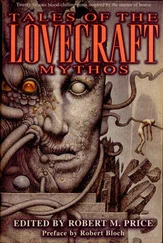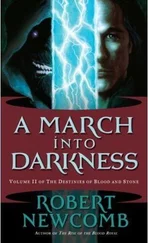Robert Pirsig - Lila. An Inquiry Into Morals
Здесь есть возможность читать онлайн «Robert Pirsig - Lila. An Inquiry Into Morals» весь текст электронной книги совершенно бесплатно (целиком полную версию без сокращений). В некоторых случаях можно слушать аудио, скачать через торрент в формате fb2 и присутствует краткое содержание. Жанр: Современная проза, на английском языке. Описание произведения, (предисловие) а так же отзывы посетителей доступны на портале библиотеки ЛибКат.
- Название:Lila. An Inquiry Into Morals
- Автор:
- Жанр:
- Год:неизвестен
- ISBN:нет данных
- Рейтинг книги:3 / 5. Голосов: 1
-
Избранное:Добавить в избранное
- Отзывы:
-
Ваша оценка:
- 60
- 1
- 2
- 3
- 4
- 5
Lila. An Inquiry Into Morals: краткое содержание, описание и аннотация
Предлагаем к чтению аннотацию, описание, краткое содержание или предисловие (зависит от того, что написал сам автор книги «Lila. An Inquiry Into Morals»). Если вы не нашли необходимую информацию о книге — напишите в комментариях, мы постараемся отыскать её.
Lila. An Inquiry Into Morals — читать онлайн бесплатно полную книгу (весь текст) целиком
Ниже представлен текст книги, разбитый по страницам. Система сохранения места последней прочитанной страницы, позволяет с удобством читать онлайн бесплатно книгу «Lila. An Inquiry Into Morals», без необходимости каждый раз заново искать на чём Вы остановились. Поставьте закладку, и сможете в любой момент перейти на страницу, на которой закончили чтение.
Интервал:
Закладка:
If one realizes that the essence of the Victorian value pattern was an elevation of society above everything else, then all sorts of things fall into place. What we today call Victorian hypocrisy was not regarded as hypocrisy. It was a virtuous effort to keep one’s thoughts within the limits of social propriety. In the Victorian’s mind quality and intellectuality were not related to one another in such a way that quality had to stand the test of intellectual meaning. The test of anything in the Victorian mind was, Does society approve?
To put social forms to the test of intellectual value was ungracious, and those Victorians really did believe in the social graces. They valued them as the highest attributes of civilization. Grace is an interesting word with an important history, and the fact that they used it the way they did makes it even more interesting. A state of grace as denned by the Calvinists was a state of religious enlightenment. But by the time the Victorians were through with it, grace had changed from godliness to mean something close to social polish.
To the early Calvinists and to ourselves too this debasement of the word seems outrageous, but it becomes understandable when one sees that within the Victorian pattern of values society was God. As Edith Wharton said, Victorians feared scandal worse than they feared disease. They had lost their faith in the religious values of their ancestors and put their faith in society instead. It was only by wearing the corset of society that one kept oneself from lapsing back into a condition of evil. Formalism and prudery were attempts to suppress evil by denying it a place in one’s higher thoughts, and for the Victorian, higher spiritually meant higher socially. There was no distinction between the two. God is a gentleman through and through, and in all probability, Episcopal too. To be a gentleman was as close as you would ever get, while on earth, to God.
All this explains why Victorian robber barons in America aped European aristocracy in ways that seem so ludicrous to us today. It explains why it was so fashionable for Victorian nabobs to pay large sums to be included in biographies of distinguished citizens. It explains why Victorians so despised the frontier part of the American personality and went to ridiculous extremes to conceal it. They wanted to strike it from their history, conceal it in every way possible.
It explains why the Victorians were so vehement in their loathing of Indians. The statement, The only good Indian is a dead Indian, was a Victorian statement. The idea of extermination of all Indians was not common before the nineteenth century. Victorians wanted to destroy inferior societies because inferior societies were a form of evil. Colonialism, which before that time was an economic opportunity, became with Victorians a moral course, a white man’s burden to spread their social patterns and thus virtue throughout the world.
Truth, knowledge, beauty, all the ideals of mankind, are passed on from generation to generation like a flaming torch, the headmaster said, which each generation must hold up high and protect with their very lives lest that torch go out. But what he meant by that torch was a static Victorian social value pattern. And what he either did not know, or found it convenient to ignore, was that the torch of Victorian romantic idealism had gone out long before he spoke those words in the 1930s. Perhaps he was just trying to relight it.
But there is no way to light that torch within a Victorian pattern of values. Once intellect has been let out of the bottle of social restraint, it is almost impossible to put it back in again. And it is immoral to try. A society that tries to restrain the truth for its own purposes is a lower form of evolution than a truth that restrains society for its own purposes.
Victorians repressed the truth whenever it seemed socially unacceptable, just as they repressed thoughts about the powdery horse manure dust that floated about them as they drove their carriages through this city. They knew it was there. They breathed it in and out. But they didn’t consider it socially proper to talk about it. To speak plainly and openly was vulgar. They never did so unless forced by extreme social circumstances because vulgarity was a form of evil.
Because it was evil to speak the truth openly, their apparatus for social self-correction became atrophied and paralyzed. Their houses, their social lives became filled with ornamental curlicues that never stopped proliferating. Sometimes the useless ornamentation was so heavy it was hard to discover what the object was for. Its original purpose had been all but lost under the gee-gaws and bric-a-brac they had laid upon it.
Ultimately their minds became the same way. Their language became filled with ornamental curlicues that never stopped proliferating until it was all but incomprehensible. And if you didn’t understand it you dared not show it because to show it meant you were vulgar and ill-bred.
With Victorian spirits atrophied and their minds hemmed in by social restraints, all avenues to any quality other than social quality were closed. And so this social base which had no intellectual meaning and no biological purpose slowly and helplessly drifted toward its own stupid self-destruction: toward the senseless murder of millions of its own children on the battlefields of the First World War.
22
Where the physical climate changes suddenly from high temperature to low temperature, or from high atmospheric pressure to low atmospheric pressure the result is usually a storm. When the social climate changes from preposterous social restraint of all intellect to a relative abandonment of all social patterns, the result is a hurricane of social forces. That hurricane is the history of the twentieth century.
There had been other comparable times, Phædrus supposed. The day the first protozoans decided to get together to form a metazoan society. Or the day the first freak fish, or whatever-it-was, decided to leave the water. Or, within historical time, the day Socrates died to establish the independence of intellectual patterns from their social origins. Or the day Descartes decided to start with himself as an ultimate source of reality. These were days of evolutionary transformation. And like most days of transformation, no one at the time had any idea of what was being transformed.
Phædrus thought that if he had to pick one day when the shift from social domination of intellect to intellectual domination of society took place, he would pick 11 November 1918, Armistice Day, the end of the First World War. And if he had to pick one person who symbolized this shift more than any other, he would have picked President Woodrow Wilson.
The picture of him Phædrus would have selected is one in which Wilson rides through New York City in an open touring car, doffing the magnificent silk hat that symbolized his high rank in Victorian Society. For a cutline he would select something from Wilson’s penetrating speeches that symbolized his high rank in the intellectual community: We must use our intelligence to stop future war; social institutions cannot be trusted to function morally by themselves; they must be guided by intellect. Wilson belonged in both worlds, Victorian society and the new intellectual world of the twentieth century: the only university professor ever to be elected president of the United States.
Before Wilson’s time academicians had been minor and peripheral within the Victorian power structure. Intelligence and knowledge were considered a high manifestation of social achievement, but intellectuals were not expected to run society itself. They were valued servants of society, like ministers and doctors. They were expected to decorate the social parade, not lead it. Leadership was for practical, businesslike men of affairs. Few Victorians suspected what was coming: that within a few years the intellectuals they idealized as the best representatives of their high culture would turn on them and destroy that culture with contempt.
Читать дальшеИнтервал:
Закладка:
Похожие книги на «Lila. An Inquiry Into Morals»
Представляем Вашему вниманию похожие книги на «Lila. An Inquiry Into Morals» списком для выбора. Мы отобрали схожую по названию и смыслу литературу в надежде предоставить читателям больше вариантов отыскать новые, интересные, ещё непрочитанные произведения.
Обсуждение, отзывы о книге «Lila. An Inquiry Into Morals» и просто собственные мнения читателей. Оставьте ваши комментарии, напишите, что Вы думаете о произведении, его смысле или главных героях. Укажите что конкретно понравилось, а что нет, и почему Вы так считаете.











